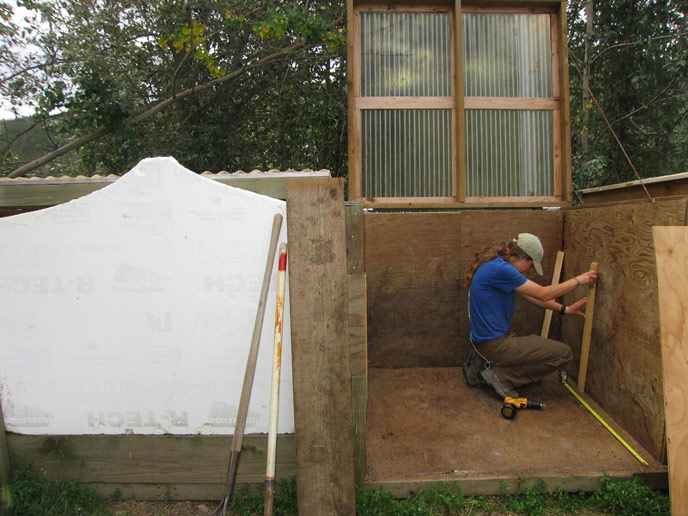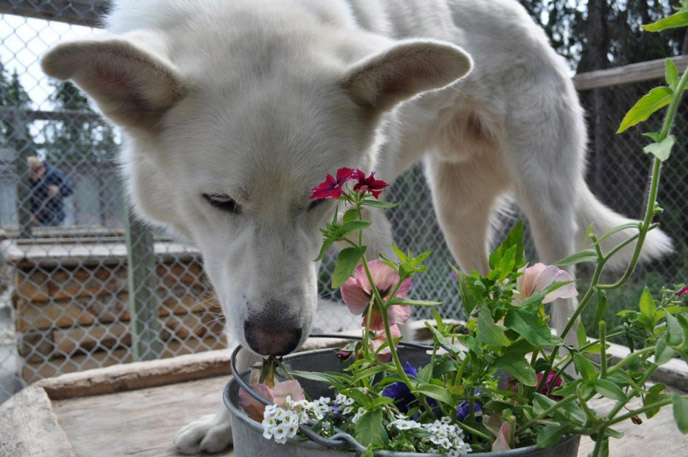The dogs in the Denali National Park kennels produce up to 50 pounds of poo a day. That's the same weight as some of our sled dogs! In 1980, the kennels staff decided that launching all that poo down the hill behind the kennels building probably wasn't the greatest idea. To minimize the build up of waste and keep our kennels area clean, a composting program was established. We built a four bin system in which the waste (nitrogen) is mixed with sawdust (carbon) and water and rotated regularly until it transforms into a soil that is jam-packed with nutrients.

Our compost bins under construction. NPS photo.
The mixture of waste, sawdust, and water is carefully concocted to give us a carbon: nitrogen ratio of 20 or 30:1, with the consistency of a worn out sponge. Once the texture and ratio are adequate, we'll start monitoring the temperature of the pile. As the pile sits, microorganisms digest the nitrogen and carbon of the waste mixture and heat is produced. The temperature of the pile tells you the level of microbial activity within it. In Denali, we wait for a pile to heat up to 145° F before we turn it.
When the microorganisms have broken down all the organic material, the pile is done "cooking". This process can take anywhere from 4-8 weeks. The odorless, nutrient-rich material that is produced is called humus. It increases the nutrient content of soils and helps retain moisture. Composting also reduces the volume of waste by over 50%!
We use this compost in flowerbeds and gardens in the Denali area. By composting our dogs' waste, we are being resourceful and sustainable. We are reducing the need for fertilizers and pesticides, cutting out the need for big trucks to transport all that poo, and making our park even more beautiful. So the next time you're moseying through the Denali dog yard, don't be afraid to stop and smell the flowers. Even our dogs appreciate the benefits of composting… just ask Cassin!

Cassin takes in the aroma of flowers grown from the compost he helped create. NPS photo.
